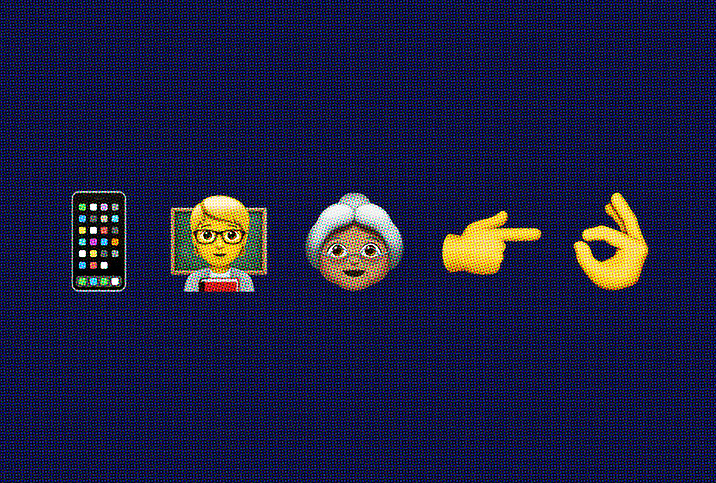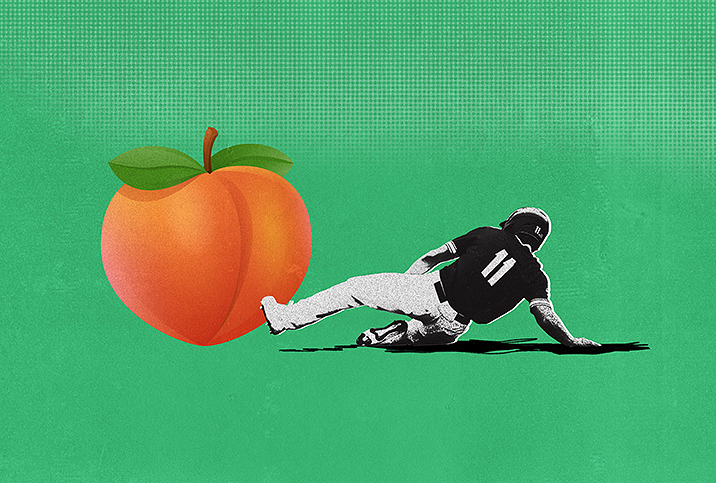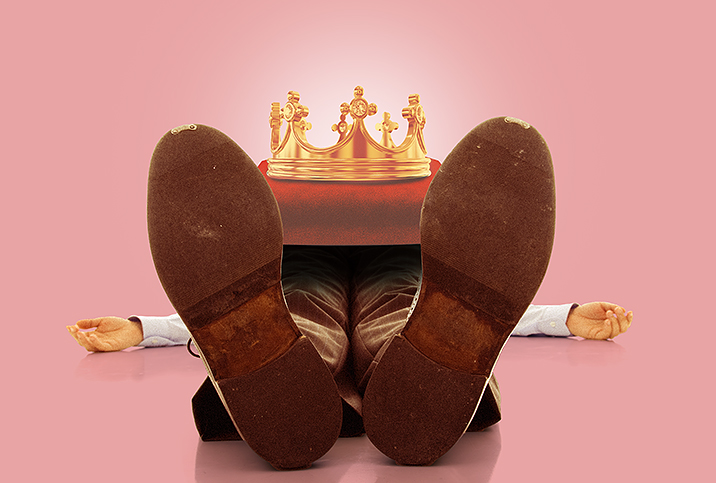7 Euphemisms for Sex, Ranked and Explained
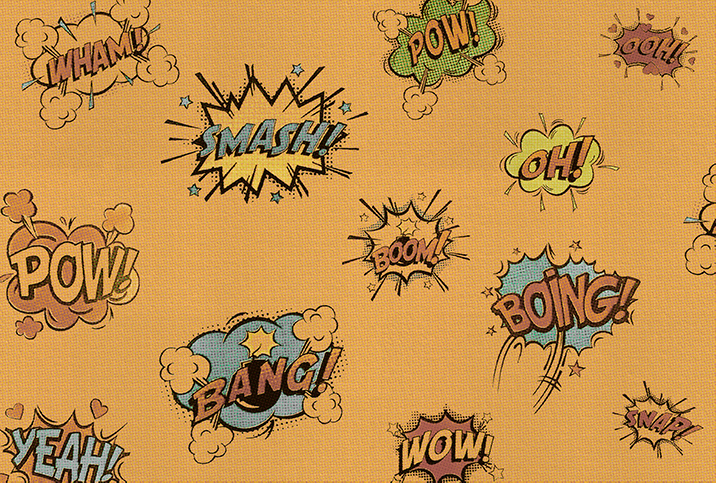
As long as social mores have made sex talk taboo, euphemisms for sex have propagated like bunnies. Even setting aside the constellation of innuendos for intercourse-adjacent acts, body parts and bodily functions, the list of double entendres is endless and ever-growing.
Few recognize this reality better than lexicographer Jonathon Green. Since long before Urban Dictionary, Green's three-volume "Dictionary of Slang" has functioned as the definitive compendium for dating and defining slang—of which a significant portion is overtly sexual. And one of Green's more recent projects, Timelines of Slang, traces the origins of Anglophone euphemisms over the past 500 years and includes a separate list of more than 1,750 terms for sexual (mostly heterosexual) intercourse.
Any list of innuendos—even Green's thousands-strong collection—is necessarily incomplete, bordering on unmanageable. Here are the most popular and memorable euphemisms for sex throughout history, explained and ranked from worst to best, along with a few historical honorable mentions from Green's archives.
7. Bump Uglies
To "bump uglies" seems self-explanatory—the "uglies" are genitals, and bumping describes the motion of sexual intercourse. However, the term's origin is a bit murkier.
Some sources—including Green's dictionary—date the term to the 1990s, but an earlier reference can be overheard in the 1961 play "The American Dream," by Edward Albee. In this satirical one-act show, the domineering wife figure describes sex to her submissive husband as "[letting] you get on top and bump your uglies."
"Interesting that bump uglies comes—at least in this seemingly very early use—from a female point of view," Green noted. "The 'uglies' in question are singular, and it is a male one: a penis. The idea of the male genitals being, by their nature, unattractive to a woman is not common in slang….most terms for penis are male-centered and celebratory."
But as a euphemism, "bumping uglies" is a deliberately unsexy way of describing intercourse. It feels pretty sex-negative and a little rude to call anyone's genitals—or your own—grotesque.
6. Netflix and Chill

Around the mid-2010s, there was a flare-up of public handwringing over "millennial hookup culture." Journalists, psychologists and concerned parents saw dating apps like Tinder as bleak evidence of young people's shallow, tech-dependent lifestyles—and, by extension, their shallow, tech-dependent version of romance.
No euphemism exemplified this cynical view of millennial love as potently as "Netflix and chill." Once an innocuous phrase, it came to imply propositioning someone under the flimsy pretense of inviting them over to binge "The Office" or every Nicholas Cage movie in the popular streaming service's catalog.
The earliest Twitter references to "Netflix and chill" as a sexual innuendo appeared in mid- to late-2014, according to Splinter writer Kevin Roose, and on Google Trends it showed a sharp spike in interest for the term around mid-2015. By then, all of the laziest Tinder users had begun endless offers to "Netflix and chill?" to every single one of their unlucky matches.
"Netflix and chill" ranks low, both as a formulaic way of soliciting hookups and as a novelty that's since grown stale. For what it's worth, studies have since found the so-called hookup culture is far less prevalent than many—including young people—assumed. Millennials might have killed everything from Hooters to the napkin industry, but they haven't managed to kill romance.
Honorable Mentions:
Dog's match (U.K., 1937): Sex in the open air, or spontaneous sex—not unlike the modern U.K. practice of "dogging."
Bread and Butter Fashion (U.K., 1786): Example from Francis Grose's "Classical Dictionary of the Vulgar Tongue": "One slice upon t'other. John and his maid were caught lying bread and butter fashion."
The Horizontal Bop/Polka/Tango/Mambo/Twist and Shout (U.S./U.K. 1989–94): The late 1980s and '90s saw a trend of crafting sexual innuendo by adding "horizontal" in front of dance moves and calling it day.
5. Banging/Smashing
These two 1960s-"Batman"-sound-effects-style euphemisms are lumped together because they serve the same function, effectively evoking the sounds and motions of noisy, distantly violent sex. (See also: boink, bump, pound, hit that, etc.)
Green referred to a long-running trend of using violent words for sex slang as "man hits woman." Slang gives insight into sexual attitudes, Green said, in this case betraying a masculine brand of aggression and dominance. "Slang is, after all, something of a 'man-made' language, and the male gaze is well-established," he added.
Green noted a similar trend of referring to the male member as a "gun, club, knife" or "some kind of 'boys' toy.'" To that end, he offered one of his favorite slang words as an example: "clatterdevengeance," a mid-17th-century term that suggested similar stereotypes of the male member, with the macho "clatter" referring to the noise of the deviant act and "vengeance" pointing to its misogynistic aggressiveness.
But if "banging" and "smashing" once had a derogatory flavor of one-sided masculine conquest, time has softened these terms into something playful and collaborative. Today, it's not uncommon to hear copulators across the gender spectrum refer to sex as "banging" or "smashing."
4. Getting Laid
To "lay with" or "lie with" someone has functioned as a self-explanatory euphemism for sex since Old Testament times (e.g., David "lays with" Bathsheba, and this produces a young King Solomon). But how did the term "getting laid" emerge?
One urban legend dug up by Chicago's WTTW News points to the Everleigh Club, a Chicago brothel run by sisters Ada and Minna Simms (who later each adopted the last name Everleigh). During the early 20th century, it became one of the most prestigious houses of sin in the country, leading some clients to boast about getting "Everleighed."
However, Green dismissed the Everleigh origin story as a bit of "popular etymology." Instead, he cited earlier variations of "lay" that predate the foundation of the Everleigh club ("wonderful place though that surely must have been"). Take these lyrics to the ribald song "Mot of Fleet Street" from 1836: "Oh! what a delicious thing/By a swell on the bed to be laid."
Regardless of its origins, "getting laid" is a pretty nondescript and inoffensive term for having sex, so it gets the job done even in polite company.
3. Knocking Boots
The phrase "knocking boots" conjures up images of the Wild West. Allegedly, the phrase refers to cow folk putting their boots under the bed before climbing in. Any subsequent ropin' and ridin' caused the bed to shake and said boots to bump together. But according to Green's dictionary, the term only arrived in the 1980s, well after the frontier calmed down.
As a sexual euphemism, "knocking boots" is a joking way to add a little old-school country flavor to sex talk, rather than something you'd say in earnest. So while it's charming, it's not ultimately very useful. Its nostalgic lightheartedness still holds sway, however. In 2019, Luke Bryan managed to top the country charts with his song "Knockin' Boots."
More Honorable Mentions:
Engage in Three to One (and Bound to Lose) (Scot., 1793): The "three" mentioned here are a penis plus two testicles, and the "one" is a singular vagina. Despite the imbalanced nature of this conflict, it is the army of three that is "bound to lose" semen.
Put the Devil Into Hell (Italy, 1358): In a bawdy tale from Giovanni Boccaccio's "Decameron," a hermit seduces a credulous virgin by convincing her to help him "put the devil into hell." An alternate version—"putting the pope into Rome"—appeared in 1700. All of God's creation in its right place.
Houghmagandy (Ulster/Scot. 1700): Literally translating to something like "quick leg movements," this is a very Scottish term for extramarital intercourse.
2. The Beast With Two Backs
William Shakespeare, godfather of the modern English language, peppered his comedies and tragedies alike with sex jokes and double entendres. His endless supply of bawdy puns about "swords" and "sheaths" and such kept within the limits of Elizabethan etiquette, while still managing to entertain a boisterous and often drunken audience.
But few Shakespearean sexual euphemisms—most pretty tame by modern standards—have the staying power of the "beast with two backs," from "Othello." The term refers to the sexual embrace of two lovers entwined, appearing as a single entity with two backsides.
In the play's first scene, the scheming Iago tells Senator Brabantio that his daughter is having sex with the titular character, saying, "I am one, sir, that comes to tell you your daughter and the Moor are now making the beast with two backs."
Shakespeare was the first to use this term in English in 1603, though a reference to a "two-backed beast" appears in French in Rabelais' 1532 pentalogy of novels, "Gargantua and Pantagruel." It's still a visually striking and pretty funny term hundreds of years later.
1. Macaroni in a Pot
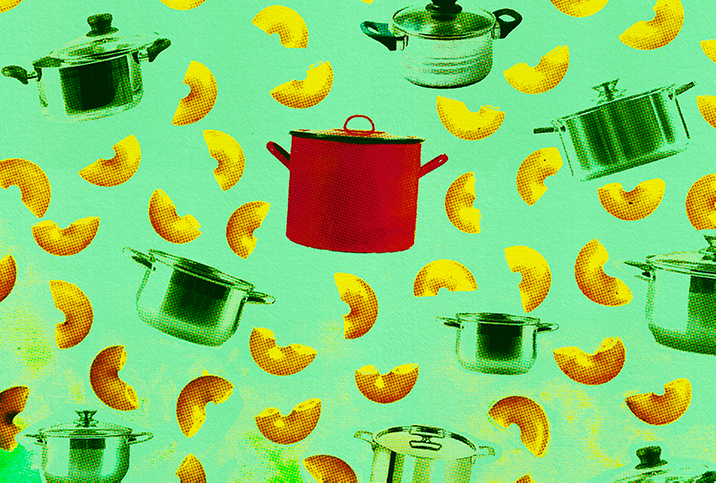
In 2020, Cardi B. and Megan Thee Stallion released the song "W.A.P." (both a slap-sound onomatopoeia and an acronym for "Wet Ass Pussy") to widespread acclaim—and outrage. The prudish backlash to the salacious smash hit from conservative listeners proved pop music can still leave pearls clutched and monocles popped.
Most of "W.A.P." is anything but euphemistic. But it's the song's cascade of memorable innuendos—like "park that big Mack truck right in this little garage" or "swipe your nose like a credit card"—that makes even its "clean" version feel filthy over radio airwaves.
Of this gushing flood of double entendres, none managed to be quite as visceral as "macaroni in a pot." The line refers to the wet sound of stirring macaroni and cheese, not unlike the noise made by the titular "wet ass pussy" while having sex.
Though she's never addressed it, many internet users and journalists have speculated Cardi's inspiration came from a now-iconic Vine by Mohamad Zoror. Cardi herself was a Vine user, and reportedly once reached out to Zoror to praise his work and ask for promotion of her own videos.
Maybe someday this euphemism for noodling will feel as cheesy as "getting jiggy with it." But for now, "macaroni in a pot" remains the perfect innuendo—amusing, evocative and somehow more scandalous than what it actually describes.













